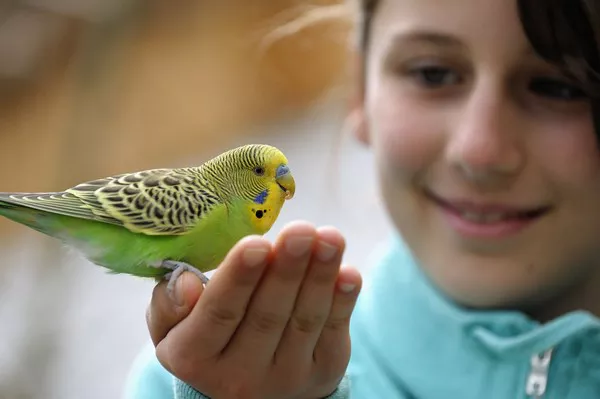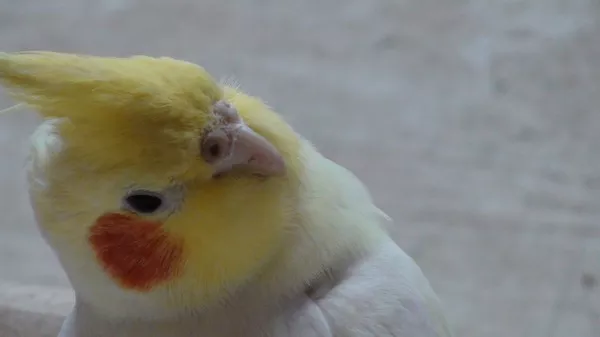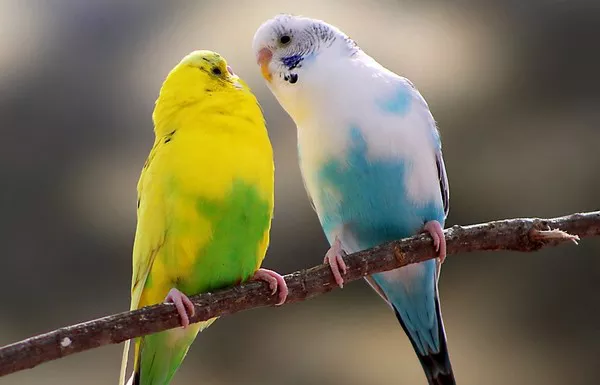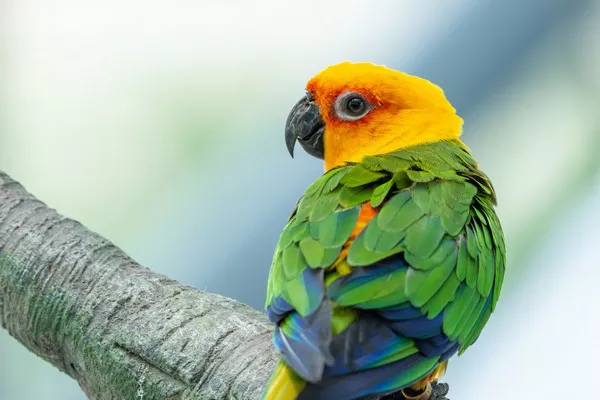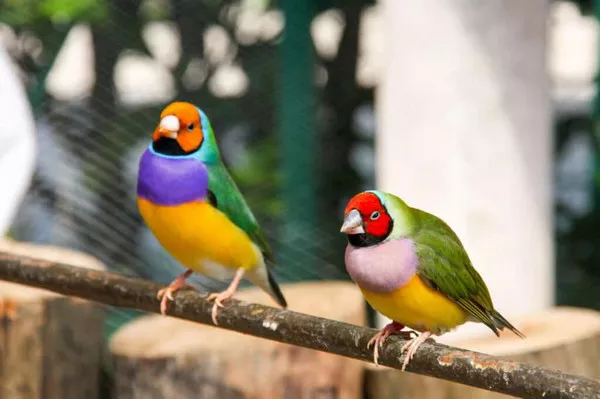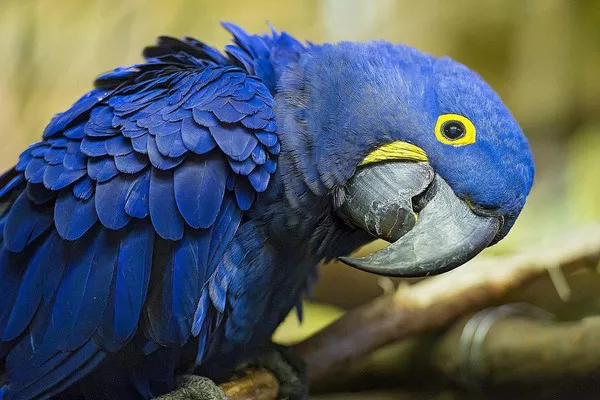When it comes to choosing a pet, sun conures (also known as sun parakeets) often catch the eye of potential bird owners. With their vibrant colors and playful personalities, they seem like the perfect companion. But are sun conures good pets? The answer isn’t as simple as a yes or no; it depends on various factors including lifestyle, commitment, and personal preference. In this article, we will delve into the characteristics, needs, and potential challenges of owning a sun conure to help you make an informed decision.
A Brief Introduction to Sun Conures
Sun conures are small to medium-sized parrots native to northeastern South America, particularly in the regions of Guyana, Suriname, and Brazil. They belong to the family Psittacidae and are scientifically known as Aratinga solstitialis. These birds are known for their bright yellow and orange plumage, which can sometimes include green, blue, and black markings. Their cheerful demeanor and intelligence make them popular among bird enthusiasts.
Lifespan and Size
Sun conures typically weigh between 100 to 120 grams (3.5 to 4.2 ounces) and measure about 12 to 14 inches (30 to 36 centimeters) in length from beak to tail. In captivity, they can live for 15 to 30 years, depending on their care and environmental conditions. This longevity means that adopting a sun conure is a long-term commitment.
Personality Traits of Sun Conures
One of the most appealing aspects of sun conures is their personality. These birds are often described as affectionate, playful, and social. Here are some key traits:
Social Butterflies
Sun conures thrive on social interaction. In the wild, they live in flocks, and their instinctual behavior is to bond with their companions. This means they enjoy spending time with their owners and can develop strong bonds with them. If you’re looking for a pet that will shower you with attention and affection, a sun conure might be your ideal choice.
Playfulness
These birds are known for their playful antics. They love to explore their surroundings and engage in activities that stimulate their minds. Providing toys and opportunities for physical exercise is crucial for their well-being. Without proper stimulation, a sun conure can become bored, leading to behavioral issues.
Vocalizations
Sun conures are quite vocal. While their cheerful chirps and squawks can be delightful, they can also be quite loud. This is an important consideration if you live in an apartment or have close neighbors. They may not be the best choice for someone looking for a quiet pet.
Requirements for Keeping a Sun Conure
Space
Before adopting a sun conure, it’s essential to consider the space you can provide. These birds require a roomy cage that allows for movement and play. The recommended minimum cage size is 24 inches wide, 24 inches deep, and 36 inches high. The larger the cage, the better, as this allows for enrichment and exercise.
Diet
A well-balanced diet is crucial for a sun conure’s health. In the wild, they consume a variety of fruits, seeds, and nuts. In captivity, their diet should consist of:
High-quality pellets: These should be the primary component of their diet, providing essential nutrients.
Fresh fruits and vegetables: Offer a variety of options such as apples, carrots, leafy greens, and berries. Avoid avocado and chocolate, as they are toxic to birds.
Seeds and nuts: These should be given sparingly as treats due to their high-fat content.
Environmental Enrichment
To keep your sun conure happy and healthy, it’s vital to provide environmental enrichment. This can include:
Toys: Provide a range of toys that encourage chewing, foraging, and problem-solving. Rotate toys regularly to maintain interest.
Perches: Offer perches of varying sizes and textures to promote foot health and provide different climbing experiences.
Social interaction: Spend time with your bird daily. Training, playtime, and simple conversations will keep them engaged.
Training and Socialization
Training a sun conure can be a rewarding experience. These birds are intelligent and can learn a variety of tricks and commands. Positive reinforcement methods, such as treats and praise, work best. Here are some tips for effective training:
Start Early
Begin training your sun conure as soon as you bring them home. Early socialization helps them adjust to their new environment and reduces the likelihood of behavioral problems.
Consistency is Key
Use consistent commands and signals during training sessions. This helps your bird understand what you expect from them.
Short Training Sessions
Keep training sessions short (5-10 minutes) to maintain your bird’s attention. Frequent, short sessions are more effective than long, drawn-out training.
Be Patient
Like any pet, training a sun conure requires patience. Celebrate small successes and don’t get discouraged by setbacks.
Potential Challenges of Owning a Sun Conure
While sun conures can be fantastic companions, there are some challenges to consider before bringing one into your home.
Noise Levels
As previously mentioned, sun conures can be quite loud. Their vocalizations may not be suitable for all living situations. If you have sensitive neighbors or live in an apartment, the noise could become a significant issue.
Attention Needs
Sun conures require a lot of attention and social interaction. If left alone for extended periods, they may develop separation anxiety or engage in destructive behaviors. It’s essential to consider whether you can meet their social needs.
Health Issues
Like all pets, sun conures can be prone to specific health issues. Common problems include:
Feather plucking: This can result from stress, boredom, or medical conditions. Providing mental stimulation and addressing any underlying issues is crucial.
Respiratory issues: These birds can be sensitive to fumes, dust, and allergens. Ensure their living environment is clean and free from harmful substances.
See Also: How Many Times Do Sun Conures Breed in a Year?
Long-Term Commitment
Adopting a sun conure is a long-term commitment, potentially lasting 30 years. Consider your future plans and lifestyle changes that could impact your ability to care for a pet.
Financial Considerations
Before adopting a sun conure, it’s important to assess the financial implications. Initial costs can include:
Cage: A quality cage can range from $100 to $500 or more.
Food: Monthly costs for a balanced diet can range from $30 to $50.
Veterinary care: Routine check-ups and potential health issues can lead to costs ranging from $100 to several hundred dollars annually.
Toys and supplies: Budget for toys, perches, and other enrichment items, which can add an additional $20 to $100 monthly.
Are Sun Conures Good Pets for Everyone?
So, are sun conures good pets? The answer depends on your individual circumstances. Here are some considerations:
Ideal Owners
Sun conures are best suited for:
Active individuals or families: Those who can provide ample social interaction and playtime.
Experienced bird owners: Individuals familiar with the needs and behaviors of parrots will likely find it easier to care for a sun conure.
Bird enthusiasts: People who appreciate the vibrant personalities and quirks of birds will enjoy the company of a sun conure.
Less Suitable Owners
Sun conures may not be ideal for:
Busy individuals: If you work long hours or travel frequently, a sun conure may not thrive in your care.
Quiet households: Those seeking a tranquil pet may find the vocalizations of a sun conure overwhelming.
First-time bird owners: Without prior experience, first-time bird owners may struggle to meet the needs of a sun conure.
Conclusion
Sun conures are undeniably captivating pets, offering vibrant colors, playful personalities, and affectionate companionship. However, their needs for social interaction, attention, and environmental enrichment require a commitment that not everyone can meet. Before deciding to bring a sun conure into your home, consider your lifestyle, financial resources, and ability to provide the necessary care.
If you can offer a loving, stimulating environment, a sun conure can be a delightful addition to your life. With proper care and attention, these birds can become cherished members of your family, brightening your days with their charming antics and vibrant presence. Whether or not they are the right pet for you ultimately depends on your willingness to embrace the joyful chaos that comes with these delightful feathered friends.
Related Topics:


